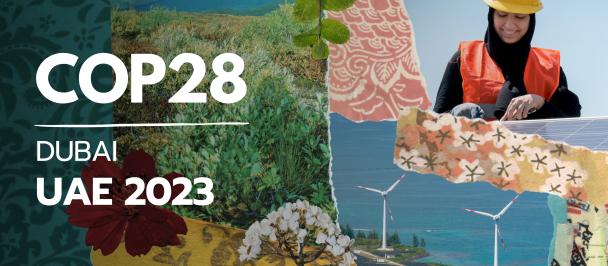The critical role of artificial intelligence in responding to the climate crisis
November 26, 2023

Event Details
December 4, 2023
10:15 to 11:00 am GST
E& Pavilion, Green Zone, Expo City Dubai, United Arab Emirates
In the pursuit of addressing the climate crisis, data becomes an indispensable tool for tracking climate progress, anticipating environmental challenges, and directing resources effectively. When leveraged correctly, data acts as a catalyst for driving climate action. The inability of governments to collect and analyze climate data significantly hampers effective climate policymaking and strategic efforts to mitigate climate change. Furthermore, as data gaps disproportionately affect those most in need of targeted interventions and the marginalized, who often coincide with those who lack avenues to voice their needs, data availability is essential to leave no one behind.
The Arab region has long grappled with a significant data deficit, particularly in measuring progress towards international agreements like Agenda 2030 and the Paris Agreements. The World Bank Statistical Capacity Index places the Middle East and North Africa region among the lowest performers in data collection, surpassing only Sub-Saharan Africa, leading to substantial gaps in data collection methods.
Data scarcity in the Arab States region is most pronounced in monitoring Sustainable Development Goals (SDGs) 10 (Inequality), 13 (Climate Action), and 16 (Peace). Timeliness and disaggregation remain major concerns, leaving policymakers and development organizations navigating in the dark. At the same time, the region faces pressing challenges from climate change, leading to frequent natural disasters, while severe water scarcity adversely affects agricultural productivity, food security, and livelihoods. Grievances over the management of natural resources and its impact on livelihoods can then act as a stressor on social cohesion, further exacerbating existing social tensions in a region already affected by severe inequalities and cleavages. Addressing data gaps is imperative to achieve the 2030 Agenda and promoting human development in the Arab States. Within this setting, leveraging Artificial Intelligence for data-informed decision-making can revolutionize development efforts.
The utilization of artificial intelligence (AI) to combat climate change is recognized as an urgent priority. AI holds the potential to bring about transformative advancements in environmental data monitoring, resource management optimization, and the enhancement of climate resilience strategies. This event will convene a distinguished high-level panel of experts, initiating a thorough discussion on the effective utilization of AI for climate action. The discussions will encompass the exploration of cutting-edge AI applications for climate action, formulation of policy frameworks, and collaborative endeavors, all with the overarching goal of mitigating the impacts of climate change and promoting long-term sustainability.

 Locations
Locations



